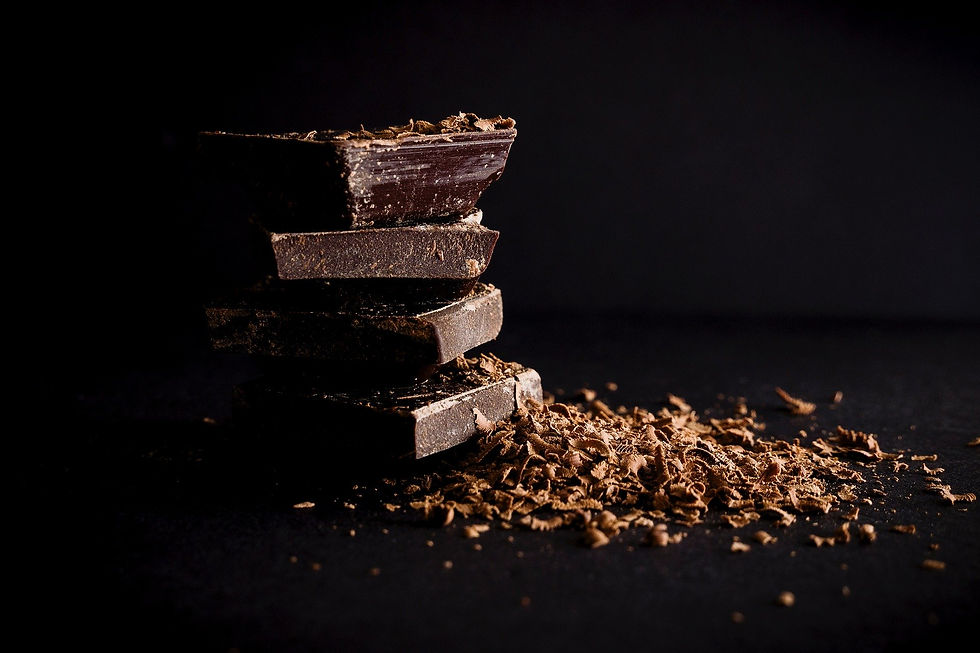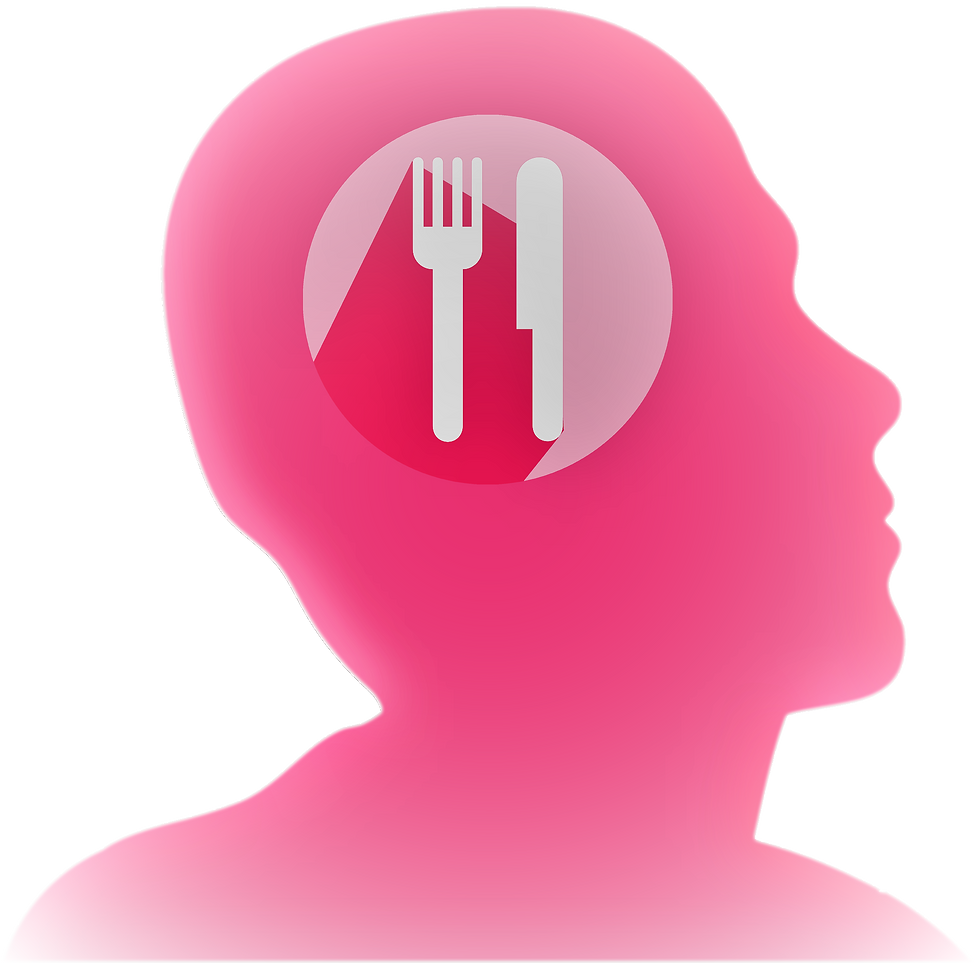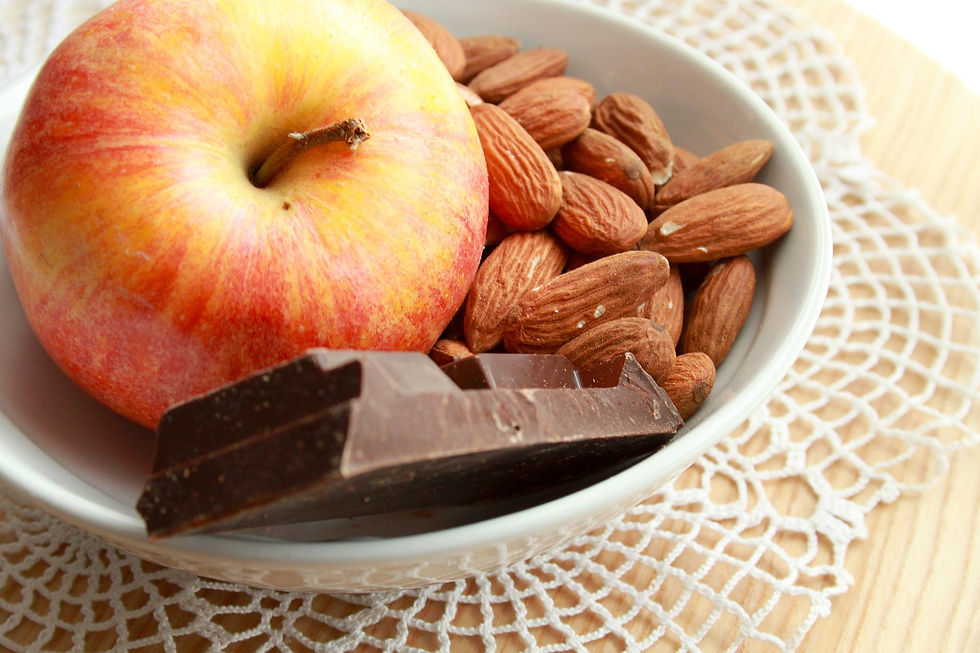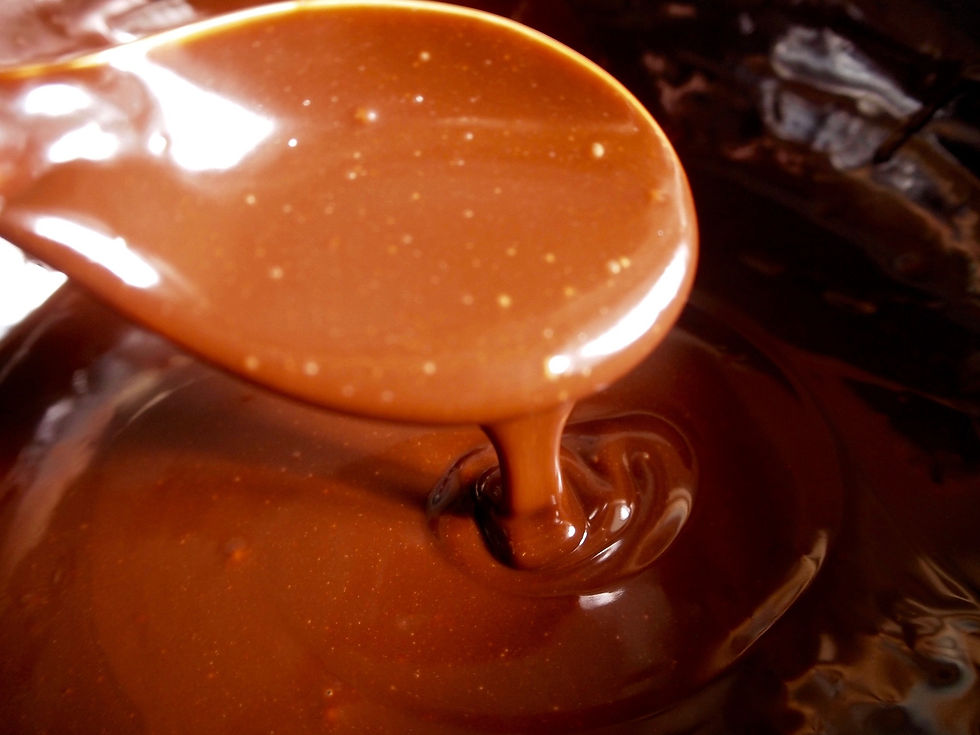Why You Can’t Put That Chocolate Bar Down.
- Fabiana Peers
- Sep 7, 2020
- 5 min read

Everyone loves chocolate (I know I do) but why is it that we crave it so much? Many of us experienced weight gain during quarantine. This isn’t surprising considering the increase in anxiety and decrease in healthy food consumption. However, before we go any further, I would just like to say: so what! Today I will be discussing why it is so difficult to put that chocolate bar down, but this will NOT be a shaming article! I am a big advocate of self-love and if you have experienced ‘quarantine-15’, it is important to love yourself! If you have mental health issues related to food consumption, please do not read this article. With that being said, let’s get started.
Hunger and Satiety

Before we can think about why chocolate tastes so good, we must first discuss how hunger and satiety (feeling full) work. When we’re hungry, the stomach produces an amino acid called ghrelin. This stimulates cells in the hypothalamus (there’s a reason this crops up so much) and the lateral nucleus. These communicate to other brain areas to tell us when to seek food. So, when you feel a chocolatey urge, this is one of things which is going on in your body. When we feel full, stretch receptors in our stomach send a signal to the hypothalamus. The hypothalamus then tells fat cells to produce a chemical called leptin. This, amongst other things, tells us when we are nearing chocolate overload!
Relative Value

I’m sure many of you have experienced feeling full, but always have room for a spot of pudding. Trust me, if there is any kind of chocolate on offer, it’s unlikely that I’m going to refuse it! But why does this happen if we feel full? Well, a researcher named Edmund Rolls and colleagues conducted a study to find this out! Researchers gave hungry participants one type of food and then assessed their pleasure ratings. They found that when participants were given a different food type after this, their pleasure ratings increased. From an evolutionary point of view, this may be because we have adapted so that we can gain any additional nutrients a slice of cake may provide, that our pizza hasn’t already. In a later study, Rolls found that when he offered participants 1 type of yogurt vs many flavours, participants ate more when there was greater choice available. This is because an area of the brain known as the executive/associative loop gives you information on how rewarding something will be, based on your previous encounters with it. For example, researchers Hugo Crichley and Edmund Rolls found that when they gave monkeys lots of black current juice, they would no longer find this pleasurable after a while, but would still hanker after apple and banana flavours. This would explain why we still crave chocolate, despite not actually feeling hungry.
Why Chocolate?

It isn’t surprising that the UK’s favourite snack is a chocolate digestive. Many of us can wolf a whole packet down without a second thought. However, it is not yet understood what makes us want it so badly. Is it the texture? The sweetness? The velvetiness on your tongue? I’m making myself hungry whilst writing this! Rolls (yes that guy again!) identified various innate primary rewards that humans are drawn to, most likely, through evolution. One of these rewards was sweet tastes. However, it can’t just be sweet tastes which draw us to chocolate; if this were the case, then a jam sandwich should fill the gap, but it doesn’t in the same way! Paul Rozin and others investigated this. They gave participants different forms of chocolate; some of these had all of the components of a usual chocolate bar (sugar content, cocoa compounds etc) and some were limited. They found that the one which reduced craving greatest was that of the Hershy bar (the one with all the components). This suggests that the thing which draws us to chocolate isn’t one component in particular, which is why other foods can’t match it; it’s the combination of all of these things which gets us so hyped up! So, it’s no wonder that we love a chocolate bickie so much!
How Do we Crave Chocolate?

Whilst we now know why we love chocolate, we also need to look at exactly how craving occurs. Well, it’s all to do with the reward pathways. Many of us have been led to believe that chocolate makes us feel good because it releases dopamine. This is true, but it isn’t the whole story. Researchers Kent Berrige and Morten Kringelbach were one of the first to challenge the dopamine hypothesis. In a study with mice, chimps and infants, they found that lesions to dopamine centres caused loss of learning, but not pleasure! In other words, if dopamine was responsible for pleasure by itself, you would expect participants with damage to these areas unable to experience pleasure, but this wasn’t the case. They were still able to experience innate pleasures of sweet tastes but were unable to learn new pleasures. For example, if they were to try chocolate for the first time and love it, they could not form positive associations with it, to seek it out again. In contrast, drugs such as cocaine target dopamine centres, meaning they induce craving, but not actual pleasure. This suggests that dopamine is not responsible for the feel-good factor of chocolate, but is responsible for us seeking out chocolate again. So, what is it that causes that feel-good factor? Well, it’s two chemicals called endorphin and enkephalin (tongue twisters, I know). Researchers found that when they dropped sweet-tasting liquid onto the tongue of a mouse, these chemicals would be released. They put this down to, what they called, ‘hedonic hotspots’. These are the areas of the brain associated with reward. Because these areas are highly connected to dopamine centres, we can quickly learn what we like and what we don’t. So, because chocolate is sweet (which we love anyway), these activate the hedonic hotspots such as the nucleaus accumbens and these are connected to the dopamine pathways, meaning we can learn we like it. Put simply, we love chocolate because it releases dopamine which, because it is connected to the reward pathways, means we can easily associate it with positive feelings.

So, now you know! The reason why we crave chocolate is actually quite complex. However, as I said earlier, this should in no way be taken as a shaming article. Hopefully, after reading this, you will now understand how normal it is to crave chocolate; it happens to everyone and it is in our biology to do so. If you do find yourself worrying over quarantine weight gain, I’d recommend following this link. Don’t forget to subscribe on the homepage.
Happy learning!


Comments